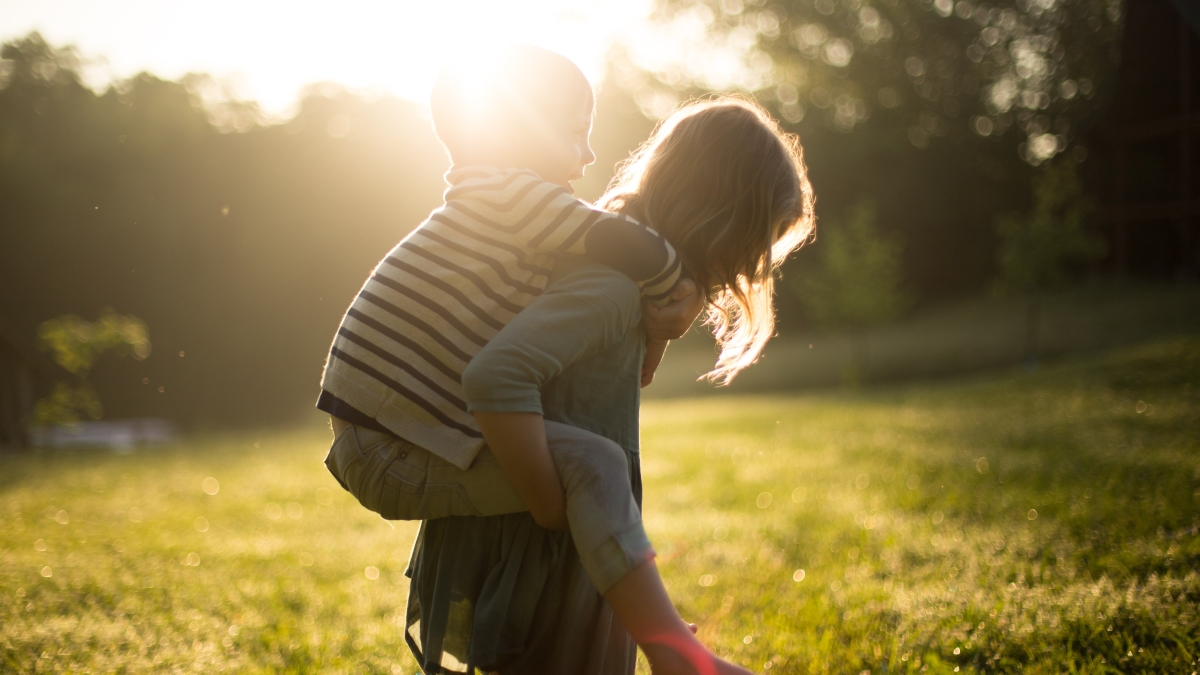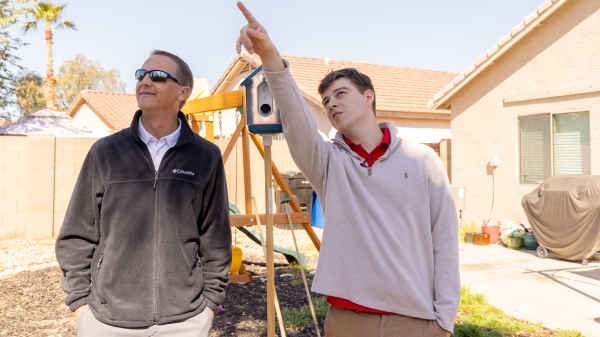ASU researchers study how parent-child bond can affect children’s development

Research from the Arizona State University Department of Psychology suggests myriad problematic outcomes in the development of a child are possible when a caregiving relationship is insecure. Photo by Jenn Evelyn-Ann on Unsplash
A baby girl sits on the floor, crying. A man picks up the child and attempts to soothe her by patting her back and quietly singing in her ear. The baby sighs and stops crying.
This scenario is an example of a secure attachment between a child and her father, but what if her parent or caregiver had not been there to offer comfort? What might happen to the quality of the relationship between the child and caregiver? The answers to these questions are unknown, but research from the Arizona State University Department of Psychology suggests myriad problematic outcomes in the development of a child are possible when a caregiving relationship is insecure.
The researchers quantified how much the quality of attachment in a caregiving relationship predicted the self-regulation abilities of children. Self-regulation is the ability to adjust behavior depending on the situation and is extremely important because it predicts performance in school, social behaviors, mental health and more.
Nancy Eisenberg, Regents’ Professor of psychology, performed the work with Susanna Pallini of the University of Roma Tre and researchers at Sapienza University of Rome. The study was published in Psychological Bulletin in May.
The project started with a question: What relation does a caregiving relationship have to a child’s self-regulation ability? The researchers focused on self-regulation because it appears to affect many, if not all, aspects of a child’s development.
“Self-regulation is so important for children’s socioemotional adjustment and relates to nearly everything important in child development, including problem behaviors and mental health, academic achievement, prosocial behaviors and sympathy for people, among other things,” Eisenberg said. “If self-regulation is compromised, a host of other skills are likely to be compromised.”
The researchers conducted a meta-analysis by combining published studies and examining the data together. In total, the researchers analyzed data from 20,350 children. The first step of a meta-analysis is to identify which studies should be included. The researchers identified 106 published studies on children 18 years or younger that measured both the self-regulation of the children and the type of attachment in their caregiving relationships.
Nancy Eisenberg
The researchers classified the adult-child caregiving relationships in the data set based on the type of attachment, which is defined by how the caregiver and child perceive each other and by how they interact.
For older children, attachment can be measured using questionnaires, while for younger children, attachment is often measured with a series of structured separations and reunions between the child and caregiver. A securely attached child will cry or show signs of distress when separated from his or her parent or caregiver but is easily comforted when reunited. A child in a caregiving relationship defined by an insecure attachment might not react at all when the parent or caregiver departs or might overreact by becoming so upset that the caregiver cannot alleviate the child’s distress. A child with disorganized attachment often seems immobilized and shows little attachment behavior.
The next step in a meta-analysis is to aggregate and analyze the findings from the included studies. The researchers compared the self-regulation of children across the different types of attachment. Children with secure caregiving relationships had stronger self-regulation compared with those with insecure attachments. Also, children with disorganized attachments were lower in self-regulation than the other groups of children combined. The association between the quality of the caregiving relationship and the child’s self-regulation ability was modest and robust.
“We found the children with secure attachments had stronger self-regulation abilities,” Eisenberg said. “Although differences in children’s self-regulation are partially due to biological factors, including genetics, the environment also plays a big role. Self-regulation can also be affected by the caregiving relationship, and the security of a caregiving relationship can be improved through interventions that train parents to be more responsive and sensitive to their children.”
This meta-analysis looked for correlations, or relations, between attachment and self-regulation in children. The researchers did not change attachment style to test whether the type of attachment in a caregiving relationship actually caused differences in the self-regulation of children. Because the researchers found children with insecure or disorganized attachments had less self-regulation ability, it is possible that if a caregiving relationship were to become insecure — from a traumatic event, prolonged separation or other interruption — the self-regulation abilities of the child would suffer.
“We reported only a correlation between attachment and self-regulation,” Eisenberg said. “But other research indicates that separation can affect attachment security. If attachment has a causal effect on self-regulation, then the children experiencing traumatic separations could have many developmental problems.”
Eisenberg and her collaborators have just finished an additional meta-analysis that investigates the relation between attachment style and attention problems in children. The findings are similar — securely attached children have fewer attention problems — and the pattern of findings emphasize the importance of stable and secure caregiving relationships for children.
More Science and technology

Celebrating 34 years of space discovery with NASA
This year, NASA's Hubble Space Telescope (HST) is celebrating its 34th anniversary of the world's first space-based optical…

Making magic happen: Engineering and designing theme parks
The themed entertainment industry is widespread and diverse, encompassing everything from theme parks to aquariums, zoos, water…

AI-equipped feeders allow ASU Online students to study bird behavior remotely
ASU Online students are participating in a research opportunity that's for the birds — literally. Online Bird Buddies is a…
